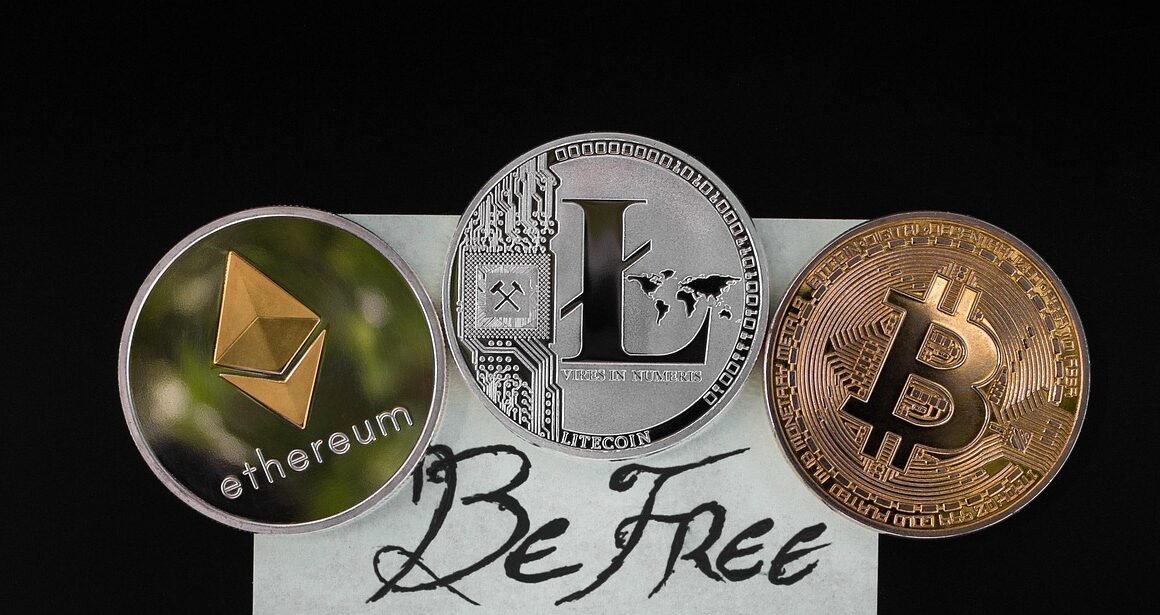Smart contracts are revolutionizing the way we think about agreements, trust, and automation in a digital world. More than just lines of code, they are self-executing agreements written directly into the blockchain, promising transparency, efficiency, and security. This blog post delves deep into the world of smart contracts, exploring their functionality, benefits, practical applications, and the future they hold.
Understanding Smart Contracts
What is a Smart Contract?
At its core, a smart contract is a self-executing contract with the terms of the agreement directly written into code. These contracts reside on a blockchain, making them immutable and transparent. Once deployed, they automatically execute when predetermined conditions are met, eliminating the need for intermediaries and reducing the risk of fraud or manipulation. Think of it as a vending machine: insert the correct payment (meet the conditions), and the machine automatically dispenses the product (executes the agreed-upon action).
- The code defines the rules and penalties around an agreement, in much the same way that traditional contracts do.
- Because they exist on a blockchain, they are distributed and decentralized. This removes the single point of failure risk.
- Smart contracts are tamper-proof, meaning no one can alter the terms of the agreement once it is deployed.
How Smart Contracts Work
Smart contracts operate based on an “if/then” logic. The contract contains specific conditions. When these conditions are fulfilled, the contract automatically executes the pre-defined outcome. This execution is verifiable by all participants on the blockchain network. Here’s a breakdown:
Key Benefits of Using Smart Contracts
Smart contracts offer a range of advantages over traditional contracts, making them increasingly attractive to businesses and individuals alike.
- Transparency: All participants have access to the contract code and transaction history, ensuring complete visibility.
- Efficiency: Automation eliminates intermediaries, reducing processing time and costs.
- Security: Immutable records and cryptographic security make smart contracts resistant to tampering and fraud.
- Trustlessness: The self-executing nature of smart contracts eliminates the need to trust a central authority or intermediary.
- Cost Reduction: By automating processes and eliminating intermediaries, smart contracts can significantly reduce operational costs.
Practical Applications of Smart Contracts
Supply Chain Management
Smart contracts can revolutionize supply chain management by tracking goods and verifying their authenticity at each stage of the process. This improves transparency, reduces counterfeiting, and ensures that products meet quality standards. For example:
- Tracking product origin and movement from manufacturer to distributor to retailer.
- Automating payments upon verification of delivery and quality.
- Improving transparency and accountability in the supply chain process.
Real Estate Transactions
Smart contracts can streamline real estate transactions, reducing paperwork, delays, and the risk of fraud. The process can be sped up drastically, and intermediary costs like escrow fees can be minimized or eliminated. Consider these applications:
- Automating the transfer of ownership upon payment of the purchase price.
- Simplifying the process of securing mortgages and loans.
- Creating transparent and tamper-proof records of property ownership.
Insurance Claims Processing
Smart contracts can automate insurance claims processing, improving efficiency and reducing the risk of fraud. Imagine a smart contract tied to weather data that automatically pays out claims to farmers if rainfall falls below a certain level. This would automate the claim process.
- Automatically processing claims based on pre-defined criteria.
- Reducing the need for manual review and verification.
- Improving the speed and accuracy of claims processing.
Voting Systems
Smart contracts can create secure and transparent voting systems, improving voter turnout and reducing the risk of fraud. Election results are harder to manipulate when vote counts are transparent and verifiable on the blockchain.
- Ensuring that each vote is counted only once.
- Providing a transparent and auditable record of all votes cast.
- Improving voter turnout by making voting more accessible and convenient.
Smart Contract Platforms
Ethereum
Ethereum is the most widely used platform for developing and deploying smart contracts. It uses the Solidity programming language and the Ethereum Virtual Machine (EVM) to execute smart contract code. Its popularity has created a large and robust ecosystem of tools and developers.
- Solidity: The primary programming language for writing smart contracts on Ethereum.
- EVM (Ethereum Virtual Machine): The runtime environment for executing smart contracts on the Ethereum blockchain.
- ERC-20 Token Standard: A standard for creating fungible tokens on the Ethereum blockchain, widely used for ICOs and other applications.
Solana
Solana is another popular blockchain platform known for its high transaction speeds and low fees. It uses the Rust programming language and its architecture allows for greater scalability than Ethereum. This makes it attractive for applications requiring high throughput.
- Rust: The primary programming language for writing smart contracts on Solana.
- Proof of History (PoH): Solana’s unique consensus mechanism allows for faster transaction processing.
- Sealevel: Solana’s parallel processing engine, enabling high throughput and scalability.
Other Platforms
While Ethereum and Solana are dominant, other platforms are emerging in the smart contract space, each with its own strengths and weaknesses.
- Cardano: Focused on security and sustainability, using the Haskell programming language.
- Polkadot: A multi-chain platform that allows for interoperability between different blockchains.
- EOSIO: Designed for high-performance decentralized applications, using the C++ programming language.
Smart Contract Security and Auditing
Common Security Vulnerabilities
Smart contracts, like any software, are susceptible to security vulnerabilities. Understanding these vulnerabilities is crucial for developers and users alike.
- Reentrancy Attacks: A malicious contract calls back into the original contract before the first invocation is finished, potentially draining funds.
- Integer Overflow/Underflow: Operations that result in values exceeding or falling below the maximum or minimum representable value, leading to unexpected behavior.
- Timestamp Dependence: Relying on block timestamps for critical logic, which can be manipulated by miners.
- Denial of Service (DoS): Attacks that render the contract unusable by legitimate users.
Best Practices for Secure Smart Contract Development
To mitigate security risks, developers should follow best practices when writing smart contracts.
- Use Secure Coding Practices: Follow established coding guidelines and patterns to avoid common vulnerabilities.
- Conduct Thorough Testing: Perform extensive testing, including unit tests, integration tests, and fuzz testing.
- Formal Verification: Use mathematical methods to verify the correctness of the contract’s logic.
- Regular Audits: Have the contract audited by reputable security firms before deployment and periodically thereafter.
The Importance of Smart Contract Audits
A smart contract audit is a comprehensive review of the contract’s code by security experts. It helps identify potential vulnerabilities and ensure that the contract functions as intended. Audits are crucial for:
- Identifying and mitigating security risks.
- Ensuring the contract meets functional requirements.
- Building trust with users and investors.
Conclusion
Smart contracts are poised to reshape industries by offering increased transparency, efficiency, and security. By understanding the core principles, practical applications, and security considerations, businesses and individuals can leverage smart contracts to innovate and create new opportunities. As the technology continues to evolve, staying informed about the latest developments and best practices will be essential for harnessing the full potential of smart contracts.



